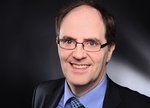The Master's programme in Mathematics aims to train application-oriented mathematicians with in-depth knowledge and skills on the basis of a first university degree in mathematics or a mathematical-scientific or technical subject with substantial mathematical content. With the majors Financial and Actuarial Mathematics and Algorithm Engineering, the study program is geared towards a mathematical field of application. The programme is offered both full-time (standard period of study three semesters) and part-time (standard period of study five semesters).
Please note that the lecture language is mainly German.
Student Advisory Service Bachelor Applied Mathematics and AI / Master Mathematics
Get straightforward advice on your future degree program! You will find the new dates for our digital student advisory service here shortly. Until then, please contact for questions about the Bachelor's degree programme 'Applied Mathematics & Artificial Intelligence' and 'Mathe² Work & Study' Prof. Dr. Annegret Weng annegret.weng(at)hft-stuttgart.de (0) +49 711 8926 2730 or Prof. Dr. Stefan Reitz stefan.reitz(at)hft-stuttgart.de +49 711 8926 2522 if you have any questions about our 'Mathematics' Master degree programme.
January, 15th (Summer semester)
July, 15th (Winter semester)
3 Semester Full-Time | 5 Semester Part-Time
Master of Science (M.Sc.)
Modules of pure and applied mathematics are offered on a scientific basis, computer science modules are to be taken as a subsidiary subject. The teaching of key qualifications is integrated in all courses.
With the specialisation to be chosen by the students before the start of their studies, the course of study is geared towards a mathematical field of application. The aim is to deepen and broaden the knowledge acquired in the Bachelor's programme. In the offered specializations Algorithm Engineering (AE) and Financial and Actuarial Mathematics (FV), students learn to understand complex relationships and to develop solutions with mathematical methods
Full-time study program (curriculum from WS 23/24)
Example with start of studies in the winter semester
| 1st Semester Winter semester | 2nd Semester Summer semester | 3d Semester |
|---|---|---|
| Seminar | Stochastic Analysis | master's thesis |
Elective module Mathematics 1 Analytical number theory, | numerical mathematics | |
Elective module Computer Science Business Intelligence,
| Elective module Mathematics 2 Analytical number theory, | |
| AE: Project Algorithms Engineering | AE: Pattern recognition | |
| AE: Models and methods of optimization | AE: Geometric Algorithms | |
| FV: Project Financial and Insurance Mathematics | FV: Actuarial mathematics | |
| FV: Finance (Part 1) | FV: Finance (Part 2) |
Part-time studies (Curriculum since WS 23/24)
Example with start of studies in the winter semester
| 1st Semester Winter semester | 2nd Semester Summer semester | 3rd Semester Winter semester | 4th Semester Summer semester | 5th Semester |
|---|---|---|---|---|
Elective module Mathematics 1 Analytische Zahlentheorie, | numerical mathematics | Seminar | Stochastic Analysis | master's thesis |
Elective module Mathematics 2 Analytical number theory, | Elective Module Computer Science Business Intelligence, |
| ||
| AE: Project Algorithms Engineering | AE: Models and methods of optimization | AE: Pattern recognition | ||
| AE: Geometric Algorithms | ||||
| FV: Project Financial and Insurance Mathematics | FV: Finance (Part 1) | FV: Insurance mathematics | ||
| FV: Finance (Part 2) |
- First degree course at a German or comparable foreign university with a standard period of study of at least three years in one of the following subjects: mathematics, technomathematics, business mathematics, financial mathematics, actuarial mathematics, statistics, biomathematics, scientific programming, scientific computing or a comparable subject.
- Above-average first degree.
- Participation in an interview to assess the applicant's motivation, personal suitability and language skills
- Computer science knowledge and skills from the first degree: the applicant is proficient in an object-oriented programming language, can select suitable algorithms and data types for practical tasks and use them for the solution.
- Knowledge and skills for the chosen specialisation:
- The candidate for the specialisation in financial and actuarial mathematics is familiar with the basic methods for the mathematical description of financial markets, is familiar with the basic concepts of life insurance mathematics and is able to calculate premiums and actuarial reserves.
The Master's programme in Mathematics prepares students for management and development tasks and opens the door to the higher service. After successful completion of the course, there are a wide range of job opportunities with very good career prospects in banks and insurance companies, building societies, IT and telecommunications companies, statistical offices, research and development departments of industry and commercial enterprises as well as software houses and management consultancies. The degree qualifies for a possible doctorate.
Semester abroad at the University of Split
Student reports about her experiences in Croatia
Martina Rahija spent the summer semester of 2021 as an exchange student in Split. In her Report she explains the requirements for the semester abroad and reports about her everyday life as a student in the field of mathematics. Of course, she also talks about events and excursions organized by the Erasmus Student Network. She also talks about general topics such as housing, food and the weather in Split. This report is very helpful for future exchange students with its practical tips.
![Studium Angewandte Mathematik und Künstliche Intelligenz, Master Mathematik studieren [Image: Adobe Stock]](/fileadmin/Dateien/Mathematik/_processed_/f/a/csm_Formeln_Tablet_Notebook_c9d7d2ee68.jpg)
